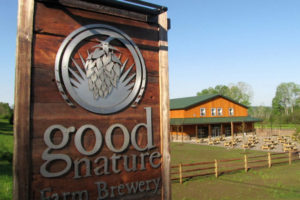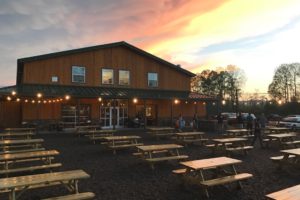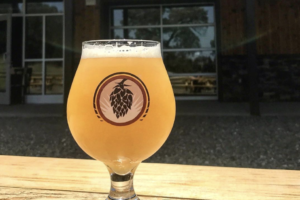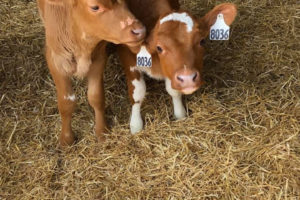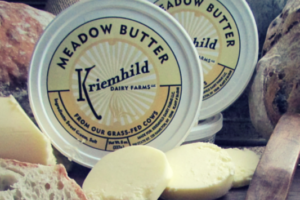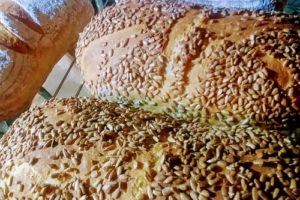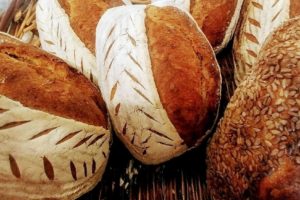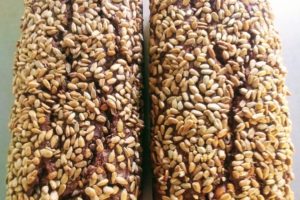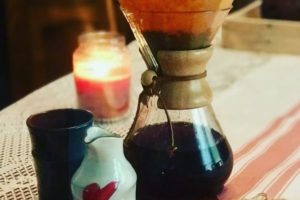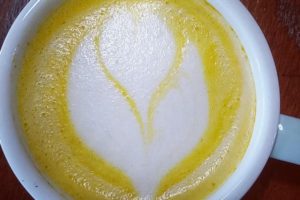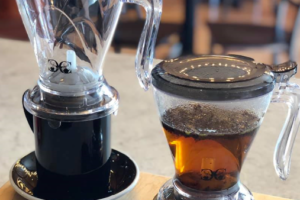Since 2015, PCD has raised over $1,000,000 in grant funds to assist local businesses and improve Hamilton’s quality of life.
Good Nature Farm Brewery
Good Nature Farm Brewery was founded in 2010 with a mission: to make quality, locally sourced beers served farm to glass. In 2015, PCD helped Good Nature apply for $241,000 in CDBG funds to construct the Good Nature Farm Brewery on Route 12. The funds were split between a grant and a loan and allowed for the efficient building of an unforeseen expense. Good Nature now treats all of their wastewater on site so as not to overwhelm the village’s treatment center. Good Nature Brewery is a truly integrated part of the Hamilton community and engages with the community through their multiple spaces and facilities. From Wednesday trivia nights to their summer Sunday concert series there are plenty of ways for Hamilton residents to enjoy all Good Nature has to offer both as a brewery and an accommodating venue. When asked about plans for the future, Blackmore answered “we’re always expanding production, we expand markets, we expand on our products here at the retail level. So we’re always growing.” It’s true Good Nature Brewery has grown incredibly quickly in the past few years, and continue to do so through their original products and firmly rooted locavore philosophy. From the Tap Room to the Farm Brewery there’s always something new and truly Good Natured.
Kriemhild Dairy
Kriemhild Dairy is a small, farmer-owned agribusiness that makes high-quality butter and other dairy products using milk from grass-fed cows.Kriemhild is currently undergoing expansion using CDBG funds awarded by the Partnership for Community Development. Rivington explains how the PCD has helped the company over the years with a combination of “grants, loans, and networking.” Funds from the PCD have been used to buy various tanks and other production equipment as well as for the installation of the equipment. Kriemhild produces an amazing quantity and quality of the product for only three full time and several part-time workers, and still has some growing and expanding they are hoping to do. With the advantages of New York’s high-quality grass and proximity to several large cities with a high demand for delicious grass-fed butter, Kriemhild is truly a local business on the rise. Rivington closed by speaking on the importance of small businesses like Kriemhild, saying “If you support local businesses, local businesses work together and help each other and support each other then that ultimately benefits the community as a whole.”
HeartStone Bakery
HeartStone Bakery at Alambria Springs Farm uses locally-sourced, organic ingredients for their bread and pastries. With PCD’s help, they are using CDBG funding to expand their facilities and purchase new equipment to increase their baking capacity. The money from the PCD was used to expand operations and buy new equipment, the star of which is the brand new Italian oven which will greatly increase production capacity. As Yahna explains, “Before we were limited by our oven, because it was a wood fired oven. We would start baking in the morning and we would stop when we ran out of the heat, and that was it!” Heartstone is looking forward to expanding their markets considerably and hiring more staff in the next year, uninhibited by limits on bread production. Yahna continues, “In the summer we produce 1200-1400 loaves of bread every week, and this year it will be even more because of our new larger oven. We could bake up to 2000 a week, and that’s not even counting pastries and buns.” As the first artisan bakery to open in the area, Heartstone is continuing to grow and expand, all while maintaining their unique, slow process that makes bread taste so great.
FoJo Beans
FoJo Beans is a small-batch, artisan coffee roaster. When FoJo Beans applied for a small grant from the Partnership for Community Development, they were told almost immediately to go for something bigger, to aim to fit a coffee niche in the Hamilton community. Joseph described the help from the PCD by saying: “The village administration has been incredibly supportive, the Hamilton Initiative has been incredibly supportive, the university has been incredibly supportive, but it was the PCD that was not only supportive but pushed us and said ‘we are moving you forward.’” Funds from the PCD went in part towards FoJo’s equipment, and in part towards working capital. Now, FoJo Beans has certainly succeeded in its initial goal to contribute to the local community, from the Hamilton farmers market to their own downtown coffee shop. Joseph describes Hamilton as FoJo’s “home turf,” and in fact, even their bakery case is being stocked daily by bakers from that original farmer’s market. What Dan Joseph and Dan Foust want people to know about FoJo Beans is this: “We started FoJo Beans in order to contribute to our local community, in the best we could.” Anyone who has been to their new storefront would agree they have succeeded.
Launch Grants
In 2017, PCD received $200,000 in CDBG funding to assist new and existing small businesses, which we distributed through our Launch Grant program. We were able to grant funding to six business owners in the Hamilton area.
Jill Nelson, the creator of Natural Beauty Prosthesis, is a licensed massage therapist who specializes in orthopedic injury work and oncology massage. The idea for Natural Beauty Prosthesis came after working with oncology massage clients who had mastectomies and expressed dismay that the only breast forms available were made of synthetic materials like silicone or polyurethane. Jill’s new venture solves this problem by providing all-natural breast forms made with organic fibers and materials. Natural Beauty Breast Prosthesis has also worked with the Partnership for Community Development over the last few years, receiving multiple grants for different purposes. Two smaller grants awarded were used to purchase a portable massage table for home visits to clients in the area, and to allow Nelson to be certified in manual lymph drainage and compression therapy. For the most recent venture, Nelson received funding for a start-up grant used to purchase equipment, such as sewing and felting machines, and the materials necessary to launch the product.
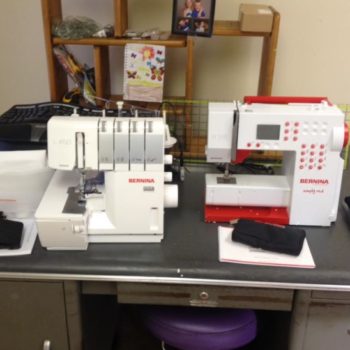
The Zen Den, owned and managed by Kriss Young, is a yoga and Pilates studio in downtown Hamilton. The Zen Den opened in 2014 with just two instructors on staff. Now it has expanded to include up to seven instructors on its monthly rotation. Kriss is currently in the process of upgrading the studio to include additional classes and retail space. Kriss Young worked with the Small Business Development Center in Utica to form the Zen Den’s business plan, and received two micro-grants from the Partnership for Community Development. These grants were used to purchase equipment for space, such as pilates chairs. Young explains that this allowed her to teach “small equipment Pilates classes instead of having to just do private or group on the mat.” Funds from the PCD also allowed Young to continue her education to become a fully certified Pilates instructor. She explains, “I’m hoping to integrate pilates work that is also a dance aerobic form of exercise.” The Zen Den is located right in downtown Hamilton, and is very much a part of the community. Young loves the setting of upstate New York because it allows her to educate people as to what yoga and pilates are all about and to teach them that “you don’t have to be young and skinny and already flexible to get started in the lifestyle.” From rehab level to athletes, the Zen Den welcomes anyone to come in and get started!
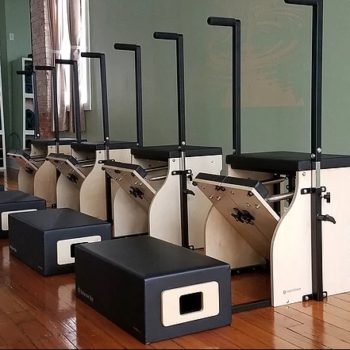
Kenneth and Kristina Mangine have been operating their mushroom farm in Lebanon since 2006. Their products are available at various local farmers markets, retail establishments, and used in a number of restaurants. All their mushrooms are organically grown and packaged on-site. Fruit of the Fungi received a grant from the Partnership of Community Development in 2017 for a cooling system. This indoor cooling system allows the farm to grow mushrooms indoors year round, in the specific climate the mushrooms need to thrive. Mangine expands that “because they are more difficult to grow, they are often more profitable.” The grant was also used for the labels for their dried products, which can be found in some retail storefronts. Fruit of the Fungi hopes that consumers will continue to see the advantages of buying from local farms which can deliver a higher quality as well as being right from the community. Mangine hopes to spread the message, “we’re here, we sell mushrooms directly to consumers and all over CNY, and if you’re going out to eat, support the restaurants that support us.”
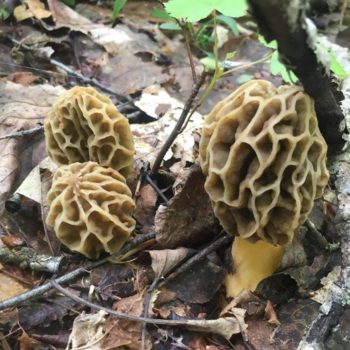
Kenji Yoshino invented his smartphone microscope using simple, DIY materials with the ambition of creating a tool that would turn any smart device into a powerful, a portable digital microscope, democratizing science and science education for people everywhere. His design went viral and has since been featured in Wired and Make magazines. In 2017, Infinite Scope was awarded a 35k launch grant by the Partnership for Community Development which truly got the business off the ground. Yoshino says himself they “wouldn’t be here today without the assistance of the Partnership for Community Development.” Infinite Scope was able to use the money from the PCD to do further prototyping and engineering of their product, as well as to increase outreach, especially through trade shows. The PCD also connected Infinite Scope to other resources such as FuzeHub, Upstate Venture Connect, Small Business Association, and the Small Business Development Center. The foundation of Infinite Scope remains what it has been since the beginning: to democratize science, and to let anyone learn.

Celeste Amaral founded CA Fitness Apparel in August 2015 with the mission of offering custom-fit athletic apparel to women with body shapes and sizes that do not conform to ready-to-wear sizing methods. The “average” sizing used by the modern clothing industry creates fit issues for over 50% of American women. Celeste is tackling this problem with a creative approach to fitness apparel for women, establishing and growing her venture in southern Madison County. Once Amaral realized she would need to manufacture her skirts as well as design them, she applied for a launch grant from the Partnership for Community Development. With the money from this grant, she purchased six sewing machines as well as an ironing station and labeler and began producing skirts for CA Fitness. Amaral explains, “The PCD was really a major driver in letting me pivot the business when at first I thought I would just be designer and marketer, it allowed me to be a manufacturer.” Celeste Amaral is providing a solution to an issue many women face when shopping for their body type.

Wendy Marland has worked in Hamilton for over twenty years as a beautician and co-owner of JJ’s Salon. In 2017, she began the process of going into business for herself by opening Lotus Salon & Spa. Wendy used her grant funding to purchase state-of-the-art salon equipment and furnishings, allowing her to provide a wide range of services and to run a highly modern salon in the Village of Hamilton.

PCD helps launch The Wild Seed PB Co.
July, 2021
The idea for manufacturing peanut butter came to Amber Codiroli in 2013. Because of her passion for nutrition and fitness, Codoroli sought high quality peanut butter made with natural ingredients. However, the options she found were either unhealthy or extremely limited. Undaunted, she decided to make her own. After a few months of developing recipes and getting feedback from friends and family, Codoroli officially turned her hobby into a business
The Wild Seed PB Co. handcrafts high quality, high protein peanut and nut butters. Their all natural and healthy peanut and nut butter spreads cater to customers with a fit and active lifestyle. As Codoroli has developed her business, the market for healthier, less processed, and more nutritious food has only grown. Codoroli explains, “the nut butter market is more popular now than ever. My goal is to create single serving packets in the next few months, since convenience is also a huge selling point.”
When Codoroli first started out, her products were sold in many local food shops and were used as ingredients in restaurants. After receiving a grant from the Partnership for Community Development, she was able to purchase new equipment which streamlined the manufacturing process and made it more efficient. With the help of the PCD, Codoroli is working to renew and expand her business relationships so that the Wild Seed PB’s peanut and nut butters will be widely available in Hamilton.

